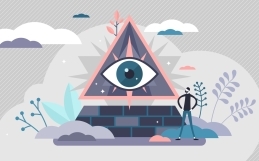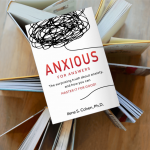“Radical acceptance is the willingness to experience ourselves and our lives as it is.”
—Tara Brach.
Lately it seems that we, as a culture, are having a hard time understanding the significance and impact of mental health concerns like anxiety, depression, feelings of helplessness, and suicide. Many people seem to believe that if you live a life that looks good on paper, you should be eternally happy and grateful—end of story. But the frightening reality is that when your life checks off all the boxes of what society says should make you happy, you can still feel anxious and sometimes helpless. And if, on top of that, you judge yourself and are judged by others for your experience, you can become even more susceptible to feeling isolated and in pain. There’s much more to a positive human experience than being wealthy, successful at our jobs, getting married, and following a pre-prescribed path. There’s feeling at home in our bodies, having thriving personal relationships, resolving trauma, repairing broken bonds, learning to manage the pitfalls of life, and living in ways that fit our values and principles. If those essential parts of our lives aren’t being addressed, we’re likely to feel depressed, lonely, anxious, and maybe even suicidal—no matter how much we might have to be grateful and happy about.
When we feel ungrateful or accuse others of it, we aren’t seeing the whole picture. Because a person’s experience doesn’t need to match how others say they should feel. You can be grateful and appreciative for what you have and still feel bad, sad, and lonely. You can love parts of your life and also feel helpless and hurt by others. Often, when we don’t have the material objects and success in life that we dream of, we believe this to be the cause of our suffering. And, of course, it may be a contributing variable. But it isn’t the only reason. It might scare us to see people we believe to have it all struggling with their mental health, because it robs us of our fairytale notion that money, love, and success will make all our pain go away. However, if we can sit still within our own experience for a moment, we can see the true cause of our sadness and recognize what really needs to be worked on and reconciled. It’s not about climbing the ladder, winning the race, or being the best; it’s about forming connections, resolving our issues, speaking our truth, and living the life we want. It’s about accepting our and others’ experiences as they are, instead of following some made-up prescription for how we should feel. We suffer not because we’re ungrateful, but because we have a hard time accepting things as they are. We suffer because we compare how our lives are to how others’ lives appear to be, or to how we believe our lives are supposed to be.
If you or someone you care about is struggling with their mental health, even if they have a lot to be grateful for, don’t point that out as a way to make them feel better. They already know. And they’re probably already suffering because they’ve told themselves that very thing. Work on listening and understanding instead. Show them acceptance. Listen to their truth with genuine curiosity. And practice accepting your own experience and honoring your own truth, without judgment or comparison. The less we try to fix, negate, or deny our feelings, and the more we allow them into our lives with compassion and openness, the less power they have over us. When we can genuinely accept the seemingly complex emotions and issues we face, we become more thoughtful about how we want to deal with them. Understanding suffering as part of the human experience gives us access to natural gratefulness for all things, good and bad.
Get a copy of my new book “Anxious for Answers: The surprising truth about anxiety, and how you can master it for good!” https://amzn.to/2N1xKfb
Did you enjoy reading this article?
Once a week I send out a newsletter with new articles and unique content for readers. It is my way of staying in touch with you and giving you free advice based on some important topics.
Click here to sign up for my newsletter.
Talk soon,
Dr. Ilene





